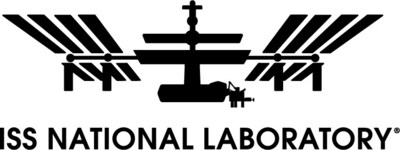Subject: SVY
New Space-Based Study Shows Promising Results for Treating, Preventing Post-Traumatic Osteoarthritis
MIT Conducts Accelerated Bone Loss Research Through ISS National Lab
KENNEDY SPACE CENTER, Fla., May 28, 2024 /PRNewswire/ -- More than 650 million people worldwide are affected by osteoarthritis, and few treatment options exist. However, new promising results from an International Space Station (ISS) National Laboratory-sponsored experiment detail a tissue chip model that accurately reproduces the conditions under which post-traumatic osteoarthritis (PTOA) is initiated. Published in Frontiers in Space in March, these findings mark an important step forward in understanding and testing treatments for the underlying causes of osteoarthritis and related conditions.
In the latest issue of Upward, the official magazine of the ISS National Lab, study author Alan Grodzinsky, a biological engineering professor at the Massachusetts Institute of Technology (MIT), discusses experiments on the space station using his team's innovative tissue chip model. The model effectively replicated a joint environment with viable human cartilage, bone, and synovium cocultures, establishing a baseline for understanding and testing treatments for PTOA, which can occur after a traumatic injury to a joint and affects around 20 percent of the millions of people with osteoarthritis. Despite its prevalence, no U.S. Food and Drug Administration-approved drugs exist to treat or prevent osteoarthritis and related conditions.
Grodzinsky commented on the significance of these findings in Upward, stating, "This opens up new possibilities for testing drugs and interventions for osteoarthritis and other joint disorders. It could also aid in developing preventative treatments."
The space environment was essential to the experiment's success, as it appeared to simulate osteoarthritis characteristics quicker than similar experiments on Earth, with past research demonstrating accelerated bone loss in microgravity. Key findings from the study show the tissue chip's capability to emulate the initiation and progression of PTOA and the effects of various treatment modalities. Notably, the device accurately simulated the impact of drugs commonly used to alleviate inflammation and pain in patients. Additionally, it showed potential for evaluating a drug designed to stimulate cartilage growth and repair, offering promising avenues for therapeutic intervention.
By providing a platform for precise and controlled experimentation, the tissue chip model offers researchers a powerful tool to explore the mechanisms underlying joint diseases and develop targeted therapeutic strategies, says Grodzinsky.
To download a high-resolution photo for this release, click here.
About the International Space Station (ISS) National Laboratory:
The International Space Station (ISS) is a one-of-a-kind laboratory that enables research and technology development not possible on Earth. As a public service enterprise, the ISS National Laboratory® allows researchers to leverage this multiuser facility to improve quality of life on Earth, mature space-based business models, advance science literacy in the future workforce, and expand a sustainable and scalable market in low Earth orbit. Through this orbiting national laboratory, research resources on the ISS are available to support non-NASA science, technology, and education initiatives from U.S. government agencies, academic institutions, and the private sector. The Center for the Advancement of Science in Spacetm (CASIStm) manages the ISS National Lab, under Cooperative Agreement with NASA, facilitating access to its permanent microgravity research environment, a powerful vantage point in low Earth orbit, and the extreme and varied conditions of space. To learn more about the ISS National Lab, visit our website.
As a 501(c)(3) nonprofit organization, CASIS accepts corporate and individual donations to help advance science in space for the benefit of humanity. For more information, visit our donations page.
Media Contact | Patrick O'Neill |
904-806-0035 | |
International Space Station (ISS) National Laboratory |
Managed by the Center for the Advancement of Science in Space, Inc. (CASIS) |
6905 N. Wickham Rd., Suite 500, Melbourne, FL 32940 ? 321.253.5101 ? www.ISSNationalLab.org |
SOURCE International Space Station National Lab
These press releases may also interest you
|
News published on and distributed by:




